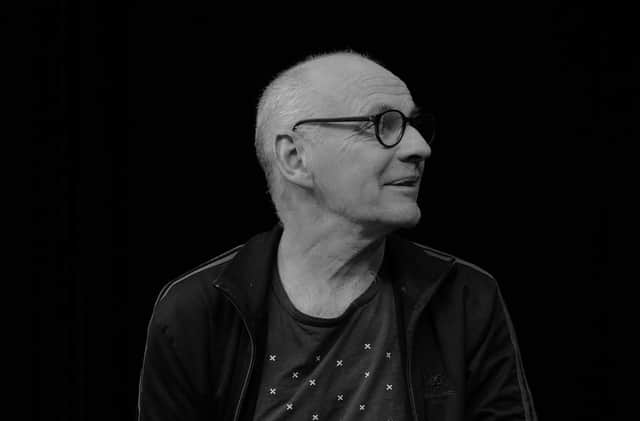'We've got to get back on track' - Andy Arnold on his post-pandemic plans for the Tron


Andy Arnold's daughter recently brought him up short. Working in Formula One racing, she commented that you don't want to finish a race stuck behind the safety car. It made Arnold think about his own role as artistic director of Glasgow's Tron Theatre."I thought is this a metaphor for me?" he laughs. "Will my last few years in the theatre be stuck behind the safety car, with socially distanced performances and all the rest of it?"
Not likely. In the last two years of pandemic, he has done all he can to keep artistic activity going. Work has included High Man Pen Meander, an excellent online celebration of Edwin Morgan's poetry filmed in the theatre's spookily empty corridors, and a post-lockdown staging of The Tempest, with an all-female company, many of whom were doing their first professional job.
Advertisement
Hide AdFor all his efforts, however, the theatre has been stuck in the slow lane. Now, as something like normal service resumes and the Tron launches its 2022 spring season, Arnold is back with renewed vigour. Not only has the pandemic given him an opportunity to address some of the structural inequalities in his industry, it has also made him more determined than ever to get as much new Scottish work on stage as he can.
"I made a commitment to try and get more actors on stage," he says. "I was aware before the pandemic that there is so little work for Scotland-based actors. That was brought home very decisively when I did a call-out for self-tapes and got hundreds of trained graduate actors who had done nothing, particularly a lot of young working-class people who had made a big commitment in terms of their families to become professional actors. There was no work for them at all."
Going to last year's funeral of director Michael Emans, whose Rapture company specialised in classic plays, reminded him how little large-cast theatre was being seen. "They were about the only company that were staging well-known plays," says Arnold. "They were performing in big theatres because there is an audience for classic theatre, whether it's an Arthur Miller or a Tennessee Williams."
The opening play of the season is a prime example of what he is talking about. Written and directed by Eilidh Loan, Moorcroft is about a group of working-class lads seeking escape in football. Based on the formative years of the playwright's father, it deals with toxic masculinity, mental illness and the challenge of reconciling ourselves with the past. It also has a cast of seven.
This is the debut play of the 24-year-old Erskine actor and Arnold says hers is a voice that needed to be heard. He got a taste of it when he put out his open call for actors, asking them to send in two-minute self-tapes. Rather than read an established text, Loan performed an extract from Moorcroft. Curious to hear more, Arnold asked to see the script.
"We did the read-through with the cast on the first day of rehearsals," he says. "At the end, there was huge applause. Normally, we're clearing our throats in silence. The response was great."
Advertisement
Hide AdHe also entrusted her with directing. "In the past, I don't think we would ever have been staging a first-time play by a young actress who has never directed before," he says. "Eilidh is such an exceptional person. We said I'd be her mentor but I realised very quickly she doesn't need me in the room. In the auditions, I was learning tips from her."
Giving young women such opportunities is crucial to correcting the profession's gender imbalance. So too is providing the chance to get involved in the running of the organisation. That is the case with director Kolbrún Björt Sigfúsdóttir, who has been taken on as a Tron associate, and will stage two shows back to back.
Advertisement
Hide Ad"It's something we're keen to develop here," says Arnold. "It's somebody who is not just coming to direct a play and going away again, but who understands how the building works and how to direct a building-based operation."
At the end of March, Sigfúsdóttir will direct Uther Dean’s Me And My Sister Tell Each Other Everything, about two siblings with a dark history. The following month, she will direct Debbie Tucker Green’s Hang, a provocative play from 2015 about a victim of crime being given permission to decide the punishment of the criminal.
And when it comes to pent-up energy, Arnold will be raring to go come the summer when he finally gets to stage the premiere of Underwood Lane by John Byrne. The comedy has been on the cards for two years and will arrive at the Tron after opening at the newly refurbished Johnstone Town Hall.
"It's great working-class theatre about life in Paisley," says Arnold about the musical play, which takes its name from the street where the playwright's pal Gerry Rafferty was born and brought up. "It's in the same spirt as The Slab Boys."
As well as the four in-house productions, the Tron will welcome a busy line-up of outside shows from companies including Vanishing Point, Surrogate Productions and Company of Wolves. "All Scottish theatre companies have to work harder at providing work for artists," he says. "Not just actors and musicians, but the whole artistic teams. Freelances suffered so much during the pandemic and we've really got to get back on track."
Moorcroft is at the Tron Theatre, Glasgow, from 17 February until 5 March, www.tron.co.uk
A message from the Editor:
Advertisement
Hide AdThank you for reading this article. We're more reliant on your support than ever as the shift in consumer habits brought about by coronavirus impacts our advertisers.
If you haven't already, please consider supporting our trusted, fact-checked journalism by taking out a digital subscription at https://www.scotsman.com/subscriptions